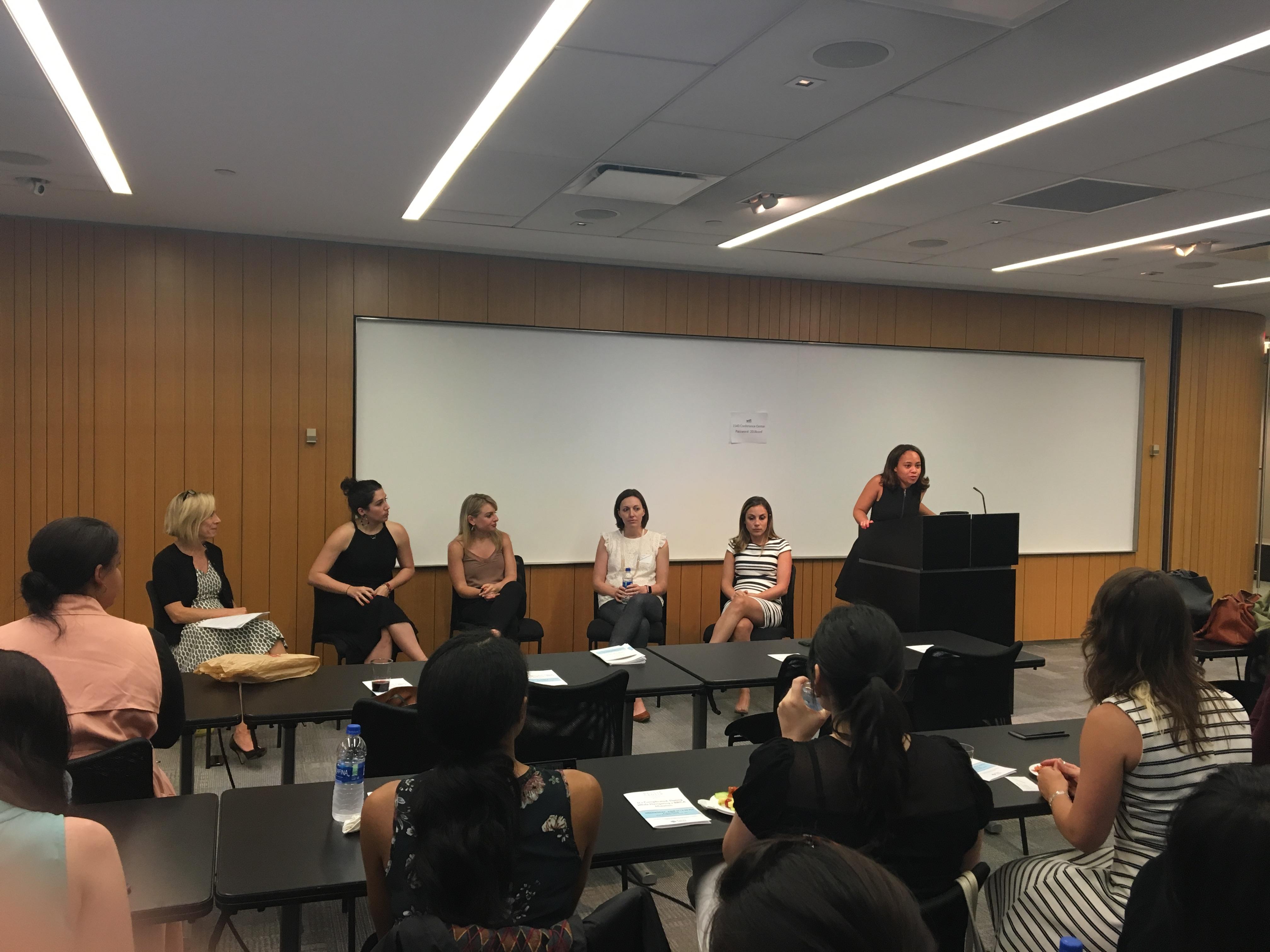
On June 27, 2018, at Foley Hoag LLC in New York City, the Basser Center for BRCA held a panel discussion on the ins and outs of dating with a BRCA mutation. Speakers included Danielle McKenna, Genetic Counselor at the Basser Center, Lindsay Hoskins, a Couples and Family therapist in Washington, D.C., and two of our Young Leadership Council members: Suzanne Zuppello, a freelance writer and BRCA mutation carrier, and Lauren Profis, a marketing professional and BRCA mutation carrier. The panel was moderated by DeAnn Smith of Foley Hoag, a U.S. patent attorney. The panel members spoke about their experiences with dating either from the perspective of medical professionals or as BRCA mutation carriers — a deeply personal topic that we feel needs more discussion.
This is the first of three articles outlining the panel discussion. The responses below reflect some of the frustrations younger individuals have with finding information about living with a BRCA mutation and we’re grateful they were willing to candidly share their experiences. Thanks to Young Leadership Council member Sarah Roth for providing detailed notes from the event.
Introductions:
Suzanne Zuppello: My aunt died of breast cancer shortly before I was born. I found out that I had the BRCA mutation the same day that Angelina Jolie published her second op-ed. I received my diagnosis in March 2015 and had a mastectomy in October 2015. A lot of the literature [about BRCA] is geared towards mothers or people in their 40s.
Lauren Profis: I remember standing in the stairwell of the office, and I was like, “should I have a double-mastectomy?” My doctor was like, “probably.” She mailed me the results and gave me the number of a breast surgeon. I thought I was a ticking time bomb for ten months [from April 2016 to December 2017].
Danielle McKenna: I work with considerations of preventative mastectomy, and with the recommendation that women have ovaries removed between 35 and 40. I always work with patients on a clear plan for receiving results, considering such factors as where you might be when getting your results delivered to you.
Lindsay Hoskins: A lot of women experience worry, fear, anxiety about making medical decisions; about other people [in their families] getting tested. We consider child-bearing issues – when and how to have a family. Much of my work is helping to differentiate between decisions that are urgent and decisions that are important [in the longer term].
How do you navigate dating amid life-changing information?
Suzanne Zuppello: My results were given with information for a breast surgeon. I was dating someone at the time and I – in a very uncomfortable way – told him I was going to get a boob job. If someone cuts your dick off, you’re going to want a replacement. Since my preventative mastectomy, I’ve had three adjustments. I’ve also frozen my eggs, because I’ve opted for ovarian surveillance. I wanted something “on ice” to help get me through this.
Lauren Profis: My mother had breast cancer when I was a kid, and my dad unfortunately passed away from cancer. I struggle with how much of [a partner’s] opinion do I take into consideration when it’s my body? When it’s “my body, my choice’? It was hard for my mother to carry the guilt that she passed this on to me.
Suzanne Zuppello: [If you enter into a relationship with a mutation carrier] you’re not just dating someone anymore. You’re dating someone with a high chance of disease. A week after my exchange surgery, I went on a date. I was like, “I can’t drink, I’m on painkillers.” When I told him about the surgery, he was like, “that’s awesome; you’re brave.”
Lauren Profis: A lot of loneliness was at the crux of my anxiety. When I met a community, it was like a weight was lifted.
Part two of this discussion will follow next week.
Opinions of the Basser Young Leadership Council members are their own personal opinions and do not necessarily represent those of the Basser Center.